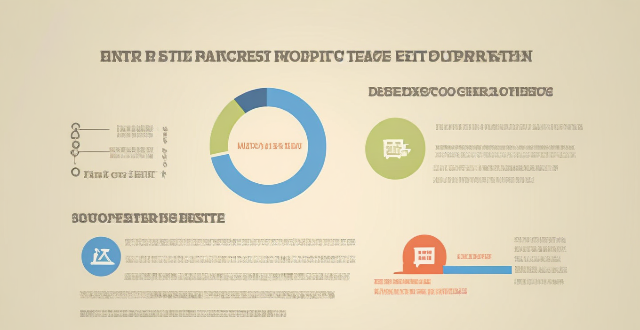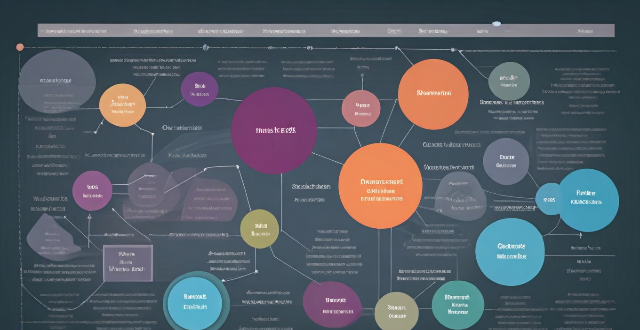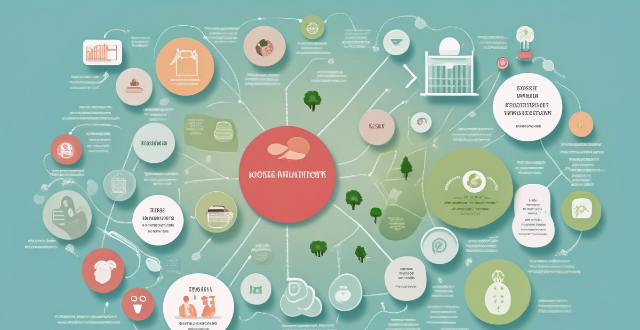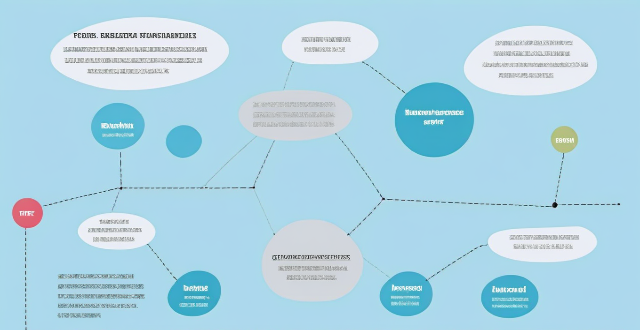Limit Access

How do I set up parental controls on my home network connection device ?
Setting up parental controls on your home network connection device is crucial for ensuring a safe online experience for your children. Here's a summary of the steps you should follow: 1. Access the router settings by typing in its IP address and entering the required login details. 2. Navigate to the parental controls section within the settings menu. 3. Create user profiles for each household member, including name, age, and unique login credentials. 4. Implement time restrictions to limit internet access during certain hours or to set daily/weekly usage limits. 5. Establish content filters to block specific types of websites or content, such as adult material, violence, or gambling. 6. Save and apply the changes, then test the controls to ensure they are functioning correctly. Additionally, it's important to regularly review and update the controls as needed, educate your children about online safety, and consider using additional tools like parental control software for enhanced protection.

How do I manage my child's Apple ID and restrict their access to certain content ?
This guide provides step-by-step instructions for parents on how to manage their child's Apple ID, set up Family Sharing, and restrict access to certain content using Screen Time and Content & Privacy Restrictions. The goal is to ensure online safety for children by monitoring their activities and limiting their exposure to inappropriate content.

How can I control who has access to my personal data ?
How can I control who has access to my personal data? To control who has access to your personal data, it's important to: 1. Understand what personal data you have and where it is stored. 2. Review privacy policies and settings of websites and apps you use regularly. 3. Use strong passwords and two-factor authentication to protect your accounts. 4. Limit the amount of personal data you share online. 5. Regularly review and update your privacy settings. By taking these steps, you can help protect your personal data from unauthorized access and ensure that it remains private.

Do unlimited data plans really provide unrestricted internet access ?
Unlimited data plans are marketed as offering unrestricted internet access, but there are often limitations in practice. These include network management practices during peak hours, fair use policies that may reduce speeds for excessive usage, and throttling after reaching certain data thresholds. Additionally, coverage areas and hidden costs can also impact the user experience. It's important to understand the specific terms of your plan before assuming you'll have completely unfettered access.

What are the pros and cons of blending traditional schooling with homeschooling ?
The text discusses the pros and cons of blending traditional schooling with homeschooling. It states that this approach offers personalized learning, flexibility, access to resources, and socialization opportunities. However, it may also lack structure, limit access to teachers, require technology, and vary in quality. Families should carefully consider these factors before deciding on this educational method.

How do unlimited data plans differ from traditional data plans ?
Data plans are essential for internet usage, with unlimited and traditional data plans being the main types. Unlimited plans offer no data limits, predictable costs, and suit heavy users, while traditional plans have data limits, variable costs, and suit light users. The key differences include data limits, cost, and usage scenarios. Choosing the right plan depends on individual needs and usage patterns.

How can we improve access to healthcare services in developing countries ?
Improving access to healthcare services in developing countries is crucial for ensuring the well-being of individuals, regardless of their geographical location or economic status. Key strategies include investing in healthcare infrastructure, training and recruiting healthcare professionals, implementing community-based health programs, and utilizing technology and innovation. By adopting a multifaceted approach that addresses various aspects of the healthcare system, it is possible to make significant strides in improving access to quality healthcare services for all individuals living in developing countries.

What policies have countries implemented to ensure equal access to education for both sexes ?
Policies for Equal Education Access: Key Policies and Challenges

How can we ensure that marginalized communities have access to vaccines ?
Ensuring that marginalized communities have access to vaccines is crucial for global health equity. This article explores strategies to address barriers such as lack of awareness, limited access to healthcare services, mistrust of the healthcare system, financial barriers, and logistical challenges. Education and information campaigns, mobile clinics and outreach programs, building trust through partnerships, providing affordable or free vaccines, and improving infrastructure and supply chain management are among the solutions discussed. By implementing these strategies, we can work towards a world where everyone has equal access to life-saving vaccines.

**How can I control who has access to the files I share through iCloud ?
The text provides a guide on how to control access to files shared through iCloud. It suggests setting up iCloud Family Sharing for sharing with family members, using iCloud Drive for general file sharing, creating Shared Albums for photos and videos, and managing access to specific apps that use iCloud. These steps ensure that only the intended recipients can view and edit the shared files.

Is there an age limit for buying travel insurance ?
Is there an age limit for buying travel insurance? Most providers do not impose any restrictions based on age, but some policies may have specific requirements or limitations regarding age. When purchasing travel insurance, consider factors such as coverage options, pre-existing medical conditions, adventure sports coverage, cost, and reputation.

What are the challenges faced by women in adapting to climate change ?
Women face unique challenges in adapting to climate change related to their roles as caregivers, farmers, and community members, limited access to resources and decision-making power. Key challenges include limited access to education, financial resources, land and property rights; caregiving responsibilities such as water collection and childcare; limited participation in decision-making processes due to political underrepresentation and cultural norms; and impacts on livelihoods through changes in agriculture, income generation, and migration. Addressing these challenges requires a gender-sensitive approach to climate change adaptation that provides education, improves access to resources, and supports women's roles.

How does climate change exacerbate gender inequality in access to resources and decision-making ?
Climate change exacerbates gender inequality by disproportionately affecting women and girls in access to resources and decision-making. Women often have limited access to resources such as water, food, and land due to cultural norms, lack of education, and poverty. They also have limited participation in decision-making processes due to cultural norms and lack of education. To address these issues, it is important to prioritize gender equality in climate change adaptation and mitigation strategies by ensuring that women's voices and experiences are taken into account when making decisions.

**How can I access and manage my iCloud data from a non-Apple device ?
This guide provides step-by-step instructions on how to access and manage iCloud data from a non-Apple device. It includes prerequisites such as having an active iCloud account and using a compatible web browser. The steps include visiting the iCloud website, logging in to your account, choosing a service to access, managing your data, and signing out of iCloud when finished. Common actions within each service are also outlined. By following these steps, users can effectively access and manage their iCloud data from any non-Apple device with an internet connection and a compatible web browser.

How can I control which apps have access to my location data on my Apple devices ?
Managing app access to location data on Apple devices is crucial for privacy and security. Here's a guide: 1. **Access Privacy Settings**: On iOS, go to Settings > Privacy > Location Services. On macOS, click the Apple menu > System Preferences > Security & Privacy > Privacy > Location Services. 2. **Toggle Location Services**: Turn on the main switch if you want apps to use your location; turn it off to disable all tracking. 3. **App-by-App Permissions**: Set permissions for each app under Location Services. Options include Never, Ask Next Time, While Using the App, and Always. 4. **System Services**: Manage system-level services that use location data in the Location Services settings on both iOS and macOS. 5. **Frequent Permission Checks**: Regularly review and revoke unnecessary permissions, especially for apps not obviously related to location services. Additional tips include keeping software updated, reading app privacy policies, and using privacy reports in iOS to monitor app access to location data.

Are current climate commitments enough to limit global warming to 1.5°C ?
The Paris Agreement aims to limit global warming to 1.5°C, but current climate commitments are insufficient. Nationally Determined Contributions (NDCs) show progress in renewable energy, energy efficiency, and forest protection, but lack ambition, consistent tracking, and long-term strategies. International cooperation has positive steps like the Green Climate Fund and technology transfer, but faces challenges with insufficient funding and unequal responsibility. Mitigation successes include carbon pricing and clean transportation, while adaptation needs focus on community resilience and natural infrastructure. To achieve the 1.5°C goal, urgent action is required in enhancing NDCs, rapid energy transition, advanced technologies, and setting long-term commitments beyond 2030 towards net-zero emissions by 2050 or sooner.

How does climate change influence childhood diseases and nutrition ?
This article discusses the impact of climate change on childhood diseases and nutrition, highlighting increased risks of infectious diseases, respiratory issues, heat-related illnesses, waterborne diseases, food insecurity, nutrient depletion, access to nutritious foods, and dietary diversity. It emphasizes the need for a multifaceted approach that includes mitigating greenhouse gas emissions and adapting to changing environmental conditions while ensuring equitable access to healthcare and nutritious food for all children.

What are the main threats to communication security ?
The text discusses the main threats to communication security, which include eavesdropping and unauthorized access, malware and viruses, social engineering and phishing, insider threats, and DoS attacks. It also provides mitigation strategies for each threat, such as encryption, secure networks, physical security, antivirus software, firewalls, software updates, awareness training, email filters, multi-factor authentication, access controls, monitoring and auditing, termination procedures, rate limiting, content delivery networks (CDNs), and intrusion detection systems (IDS).

How do language barriers affect the integration process for immigrants ?
Language barriers significantly impact immigrant integration, affecting employment opportunities, social interactions, and access to essential services. Limited job access and lower earning potential are employment-related challenges. In social interactions, cultural understanding and community participation are affected. Access to healthcare, education, and government services is also compromised due to language barriers. Addressing these issues through language education and multilingual support systems can foster a more inclusive environment for immigrants.

**Are there any limitations to the number of photos and videos I can store in iCloud ?
The amount of storage space you have in iCloud depends on your iCloud+ plan. There are different plans with varying storage limits, ranging from 50GB to 4TB. If you exceed your storage limit, Apple will alert you and give you the option to upgrade or free up space by deleting files.

How do cultural factors influence women's access to education ?
The text discusses cultural factors that influence women's access to education, including gender roles, perceptions of capability, social norms, economic priorities, religious teachings, and ethnic customs. These factors can either facilitate or hinder educational opportunities for women, shaping their roles in society and the economy. Addressing these barriers requires a multifaceted approach that includes challenging harmful cultural norms, promoting gender equality, and advocating for policies that support female education.

What are some effective tips for falling asleep faster ?
Effective Tips for Falling Asleep Faster Falling asleep can sometimes be a challenge, especially when you're tired but your mind is racing. Here are some effective tips to help you fall asleep faster: - Stick to a Sleep Schedule: Try to go to bed and wake up at the same time every day, even on weekends. This helps regulate your body's internal clock. - Create a Bedtime Routine: Wind down before bed by engaging in relaxing activities such as reading or taking a warm bath. Limit screen time to avoid blue light interference with sleep. - Make Your Bedroom Conducive to Sleep: Ensure your bedroom is dark enough, keep it cool, and invest in comfortable mattress and pillows. - Limit Caffeine and Alcohol Intake: Avoid caffeine late in the day and limit alcohol consumption to avoid disrupting your sleep cycle. - Practice Relaxation Techniques: Deep breathing exercises, meditation, and progressive muscle relaxation can calm your mind and body. - Avoid Naps During the Day: If you struggle with falling asleep at night, avoid napping during the day or limit naps to 20-30 minutes early in the afternoon. - Get Regular Exercise: Exercise regularly but avoid intense workouts close to bedtime. Choose morning or early afternoon exercise sessions to improve sleep quality without disrupting your sleep schedule.

**Is there a limit to the number of cameras I can connect to iCloud for HomeKit Secure Video ?
HomeKit Secure Video allows users to securely store video from their home security cameras in iCloud. The current limit set by Apple is up to ten cameras per account, including both indoor and outdoor cameras. If you have more than ten cameras, you will need to choose which ones are connected to iCloud for HomeKit Secure Video. Despite the limit on the number of cameras, there are several benefits to using HomeKit Secure Video, such as end-to-end encryption, motion detection, activity zones, and iCloud storage.

How can international trade contribute to economic recovery ?
International trade can contribute to economic recovery by providing increased market access, access to cheaper imports, stimulating innovation and competition, and enhancing global integration.

Are current climate targets enough to prevent dangerous climate change ?
The Paris Agreement set a global goal to limit warming to below 2°C and pursue efforts to limit it to 1.5°C. Countries submitted Nationally Determined Contributions (NDCs) outlining their plans to reduce emissions. However, there is a significant gap between the emissions reductions implied by current NDCs and the level required to meet the 1.5°C target. Many NDCs focus on short-term goals without clear pathways to achieve long-term decarbonization. While adaptation measures are crucial, they cannot replace the urgent need for mitigation efforts. To strengthen climate action, countries should revise and strengthen their NDCs to align with the 1.5°C target, invest in renewable energy and energy efficiency, develop robust adaptation strategies, and foster international collaboration on technology transfer and finance mechanisms. More ambitious goals, combined with concrete actions at the national and international levels, are necessary to keep global temperature rise within safe limits. The urgency of the situation demands a concerted effort from all sectors of society to transition towards a sustainable future.

How can I access hidden features on my iPhone or iPad running iOS ?
To access hidden features on your iPhone or iPad running iOS, you need to enable Developer Mode, use secret gestures, customize Control Center, use Siri Shortcuts, explore Accessibility Features, and utilize hidden app features. By following these steps, you can uncover a world of hidden gems on your device.

What is the relationship between social inequality and access to resources for climate adaptation ?
The relationship between social inequality and access to resources for climate adaptation is influenced by economic, social, and political factors. Wealthier individuals often have more resources, while marginalized groups may face discrimination. Education plays a crucial role in raising awareness about climate change, and cultural beliefs can impact adaptation strategies. Government policies can either exacerbate or mitigate social inequality, and participatory decision-making processes are essential for equitable resource allocation. Addressing social inequality requires equitable resource allocation, capacity building, community-driven approaches, and targeted interventions for vulnerable populations.

Are there any exclusions or limitations to sports insurance coverage ?
Sports insurance is designed to protect athletes, coaches, and organizations from financial losses due to injuries, accidents, or other unforeseen events. However, there are certain exclusions and limitations that may apply, including pre-existing conditions, high-risk sports and activities, alcohol and drug use, deductibles and co-payments, policy limits, and time limits for filing claims. It is important to be aware of these factors when purchasing sports insurance to ensure adequate coverage for your needs.

How do speed limits affect traffic safety ?
Speed limits are crucial components of traffic safety. They serve as a tool to control the speed of vehicles on the road, thereby reducing the risk of accidents and fatalities. In this article, we will discuss how speed limits affect traffic safety in detail. Importance of Speed Limits: - Reduced Accident Severity - Improved Driver Reaction Time - Reduced Congestion Impact of Speed Limits on Traffic Safety: - Reduction in Fatalities - Decreased Risk of Injury - Increased Compliance with Traffic Laws